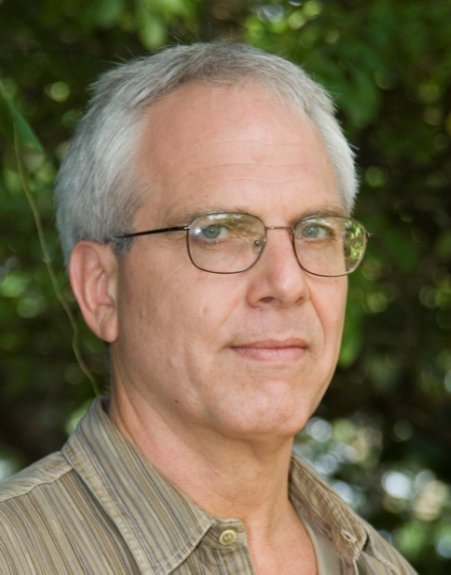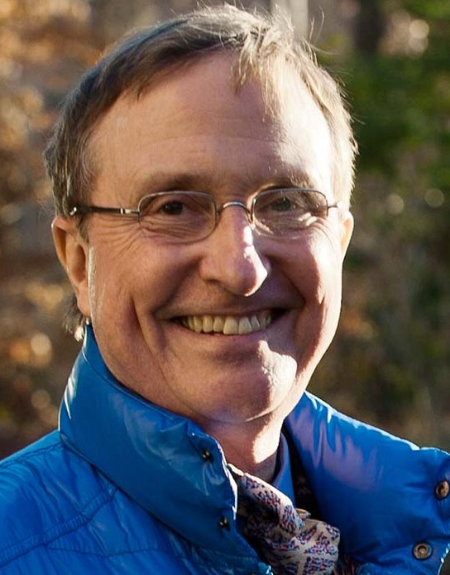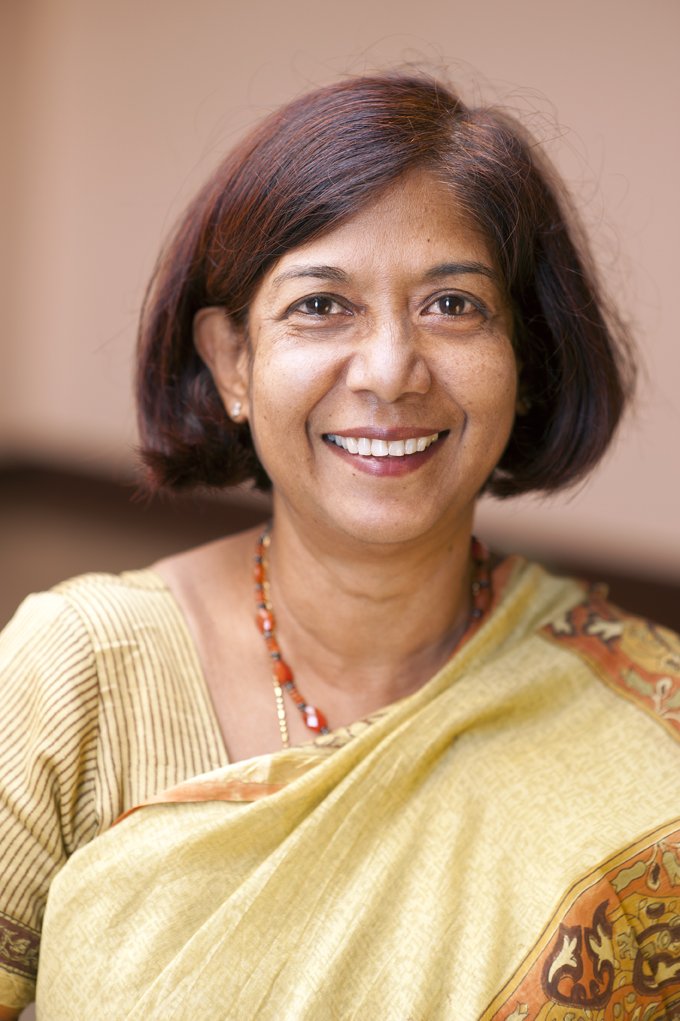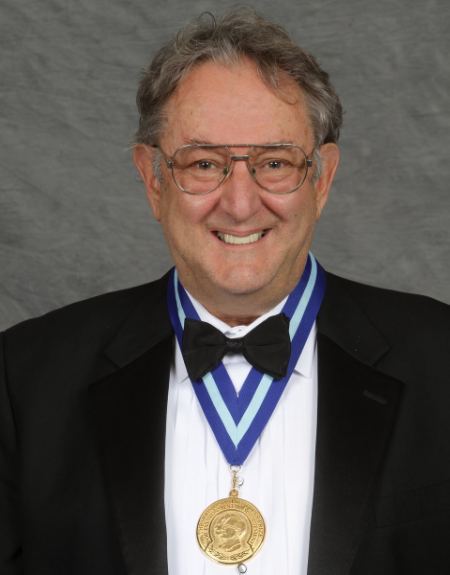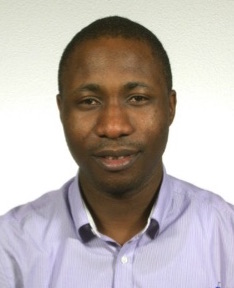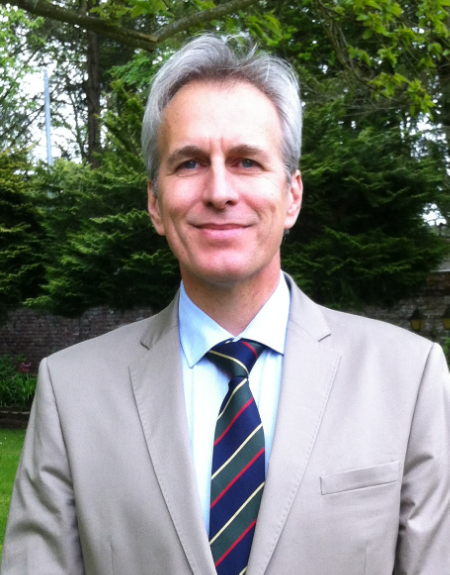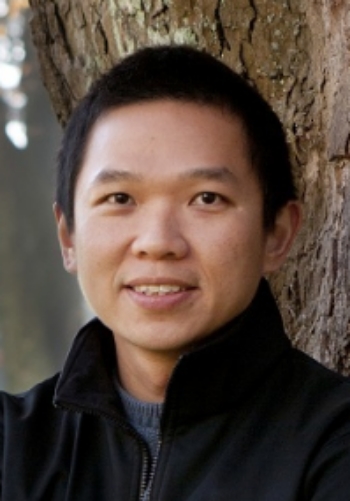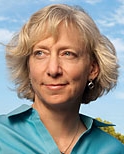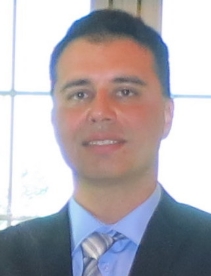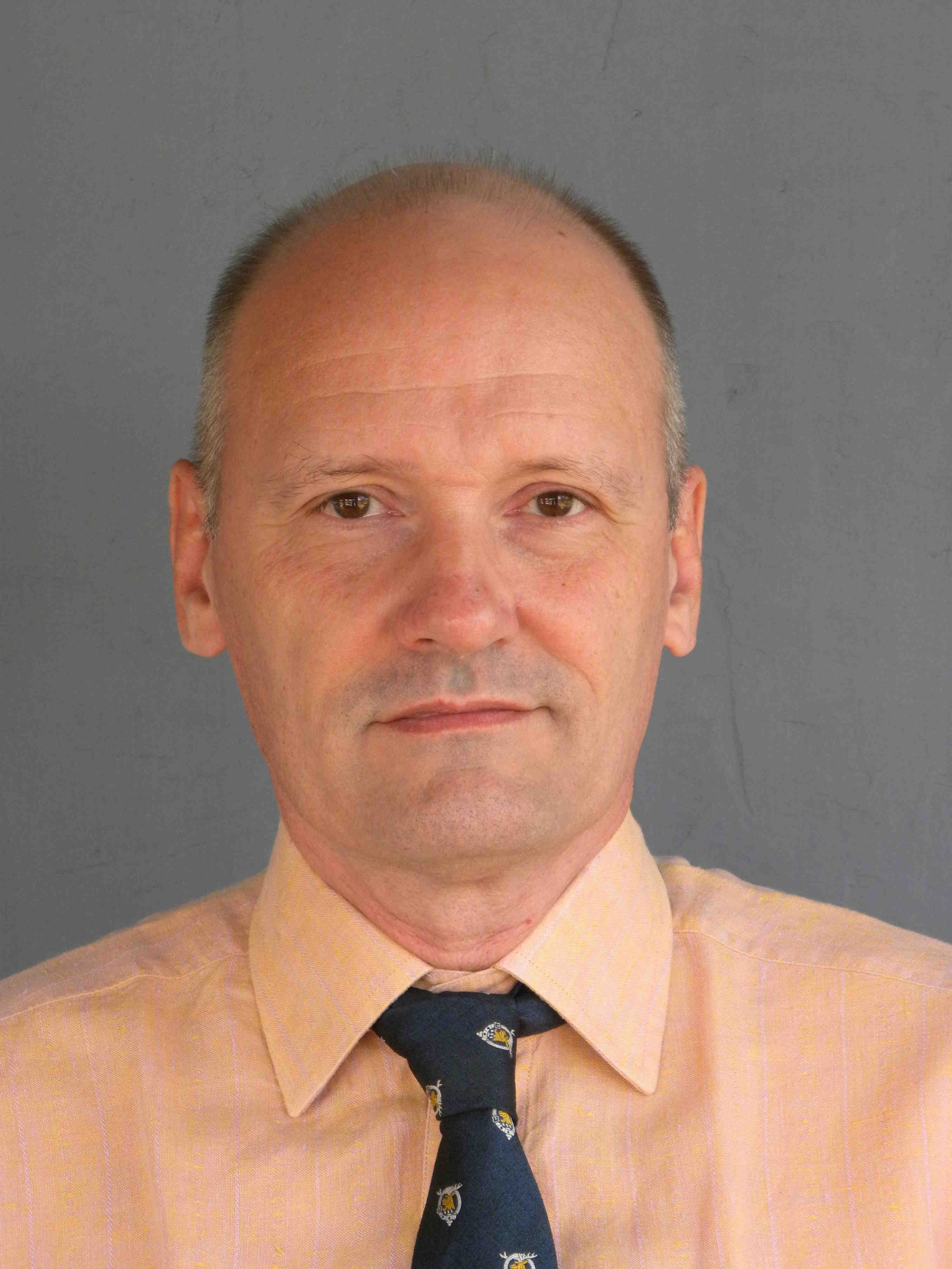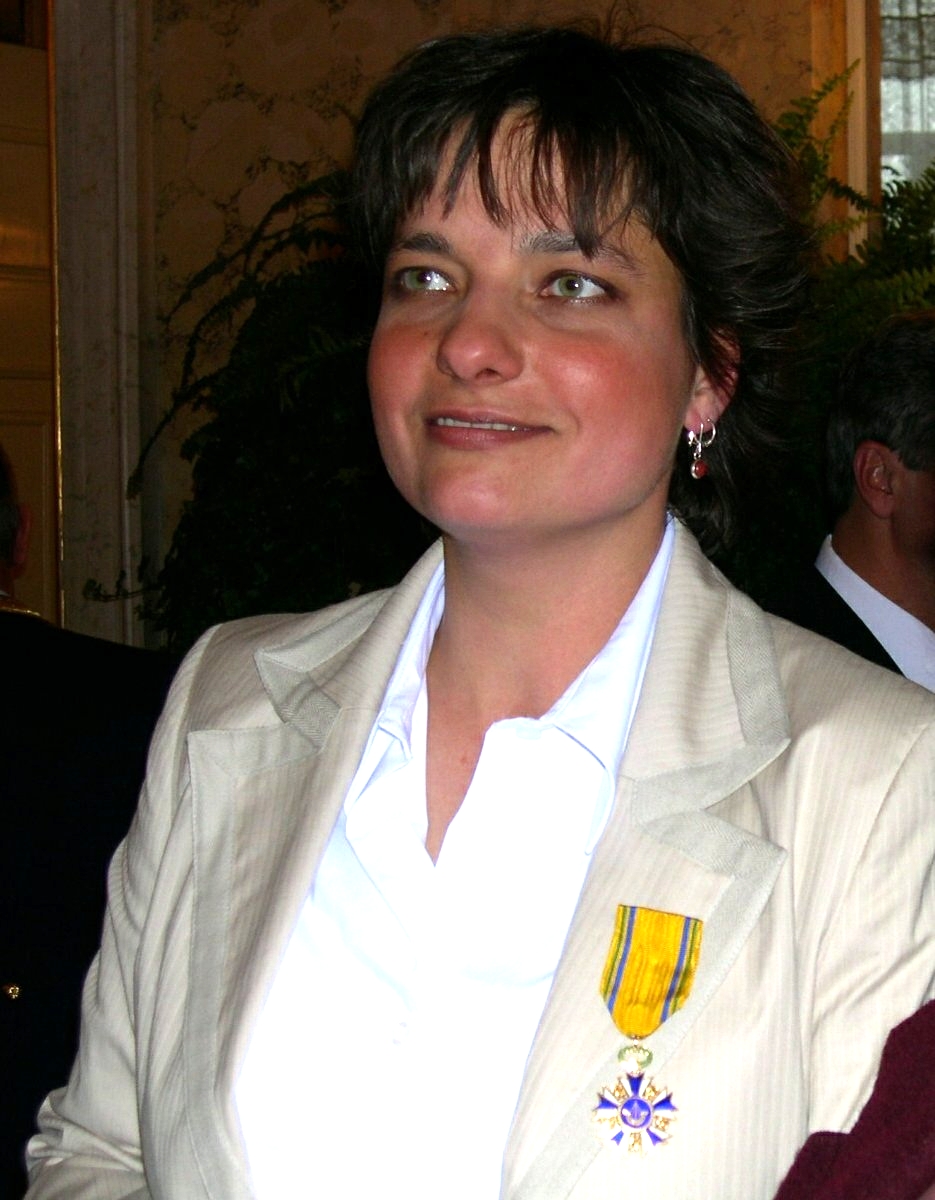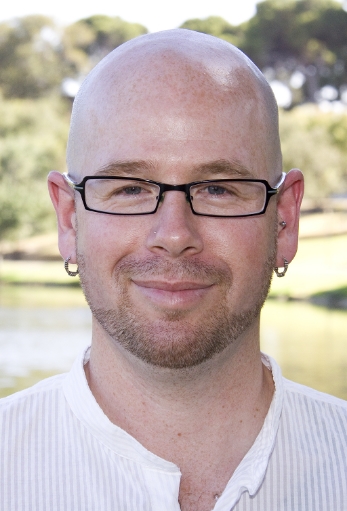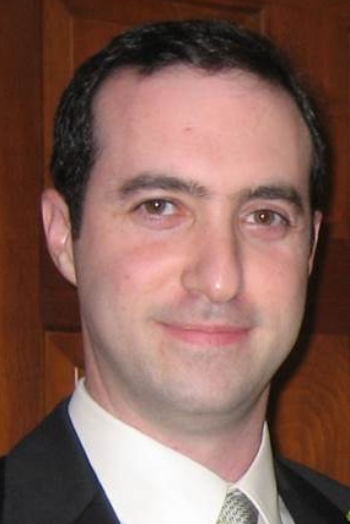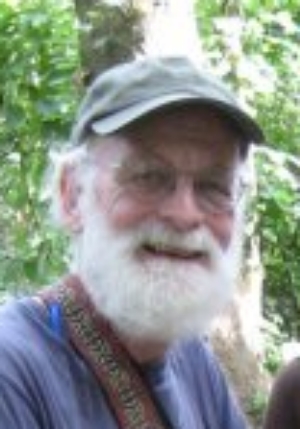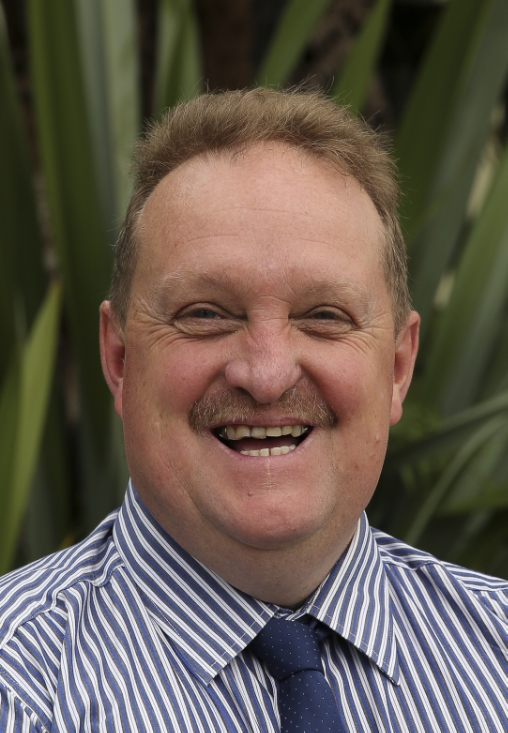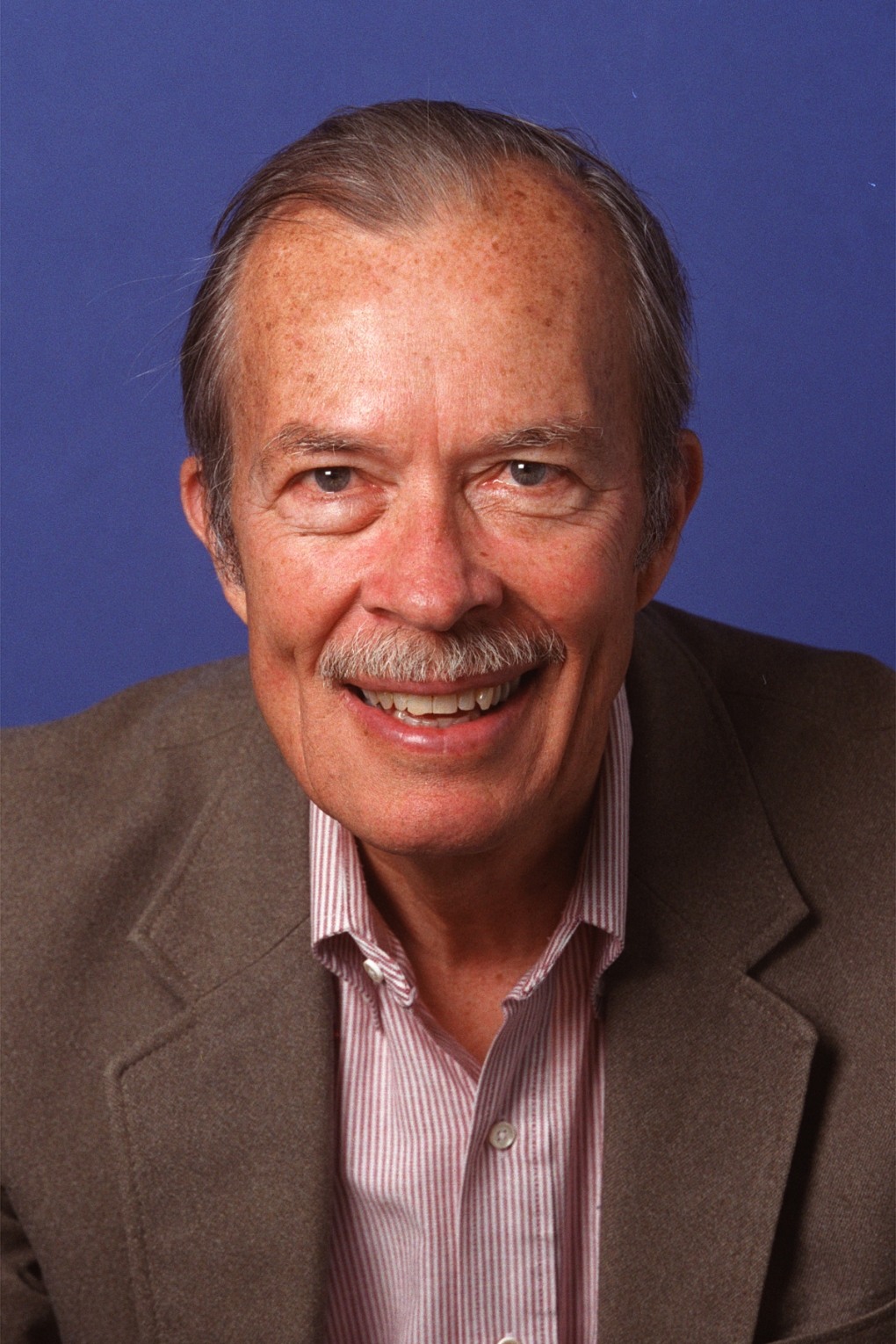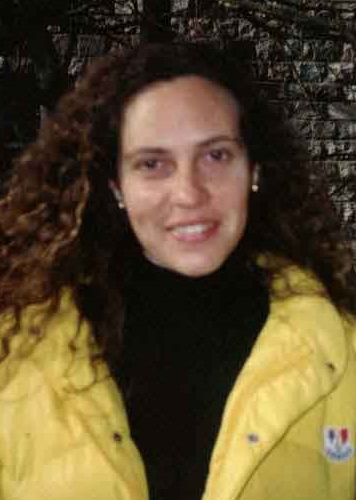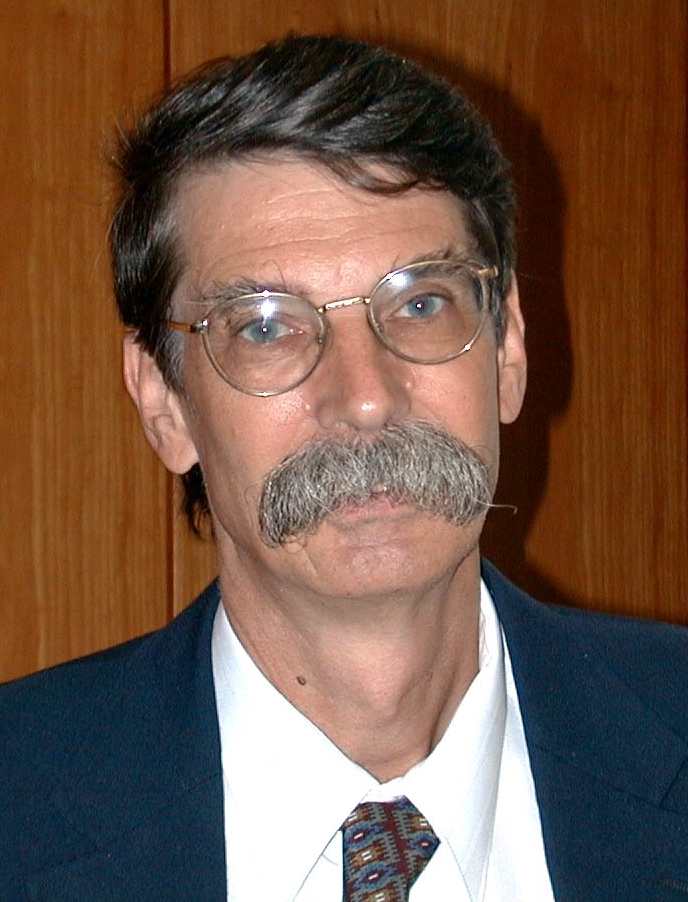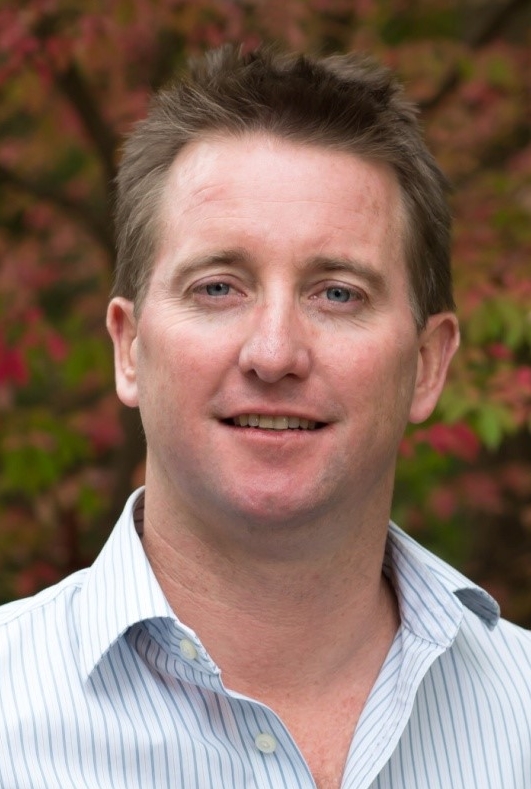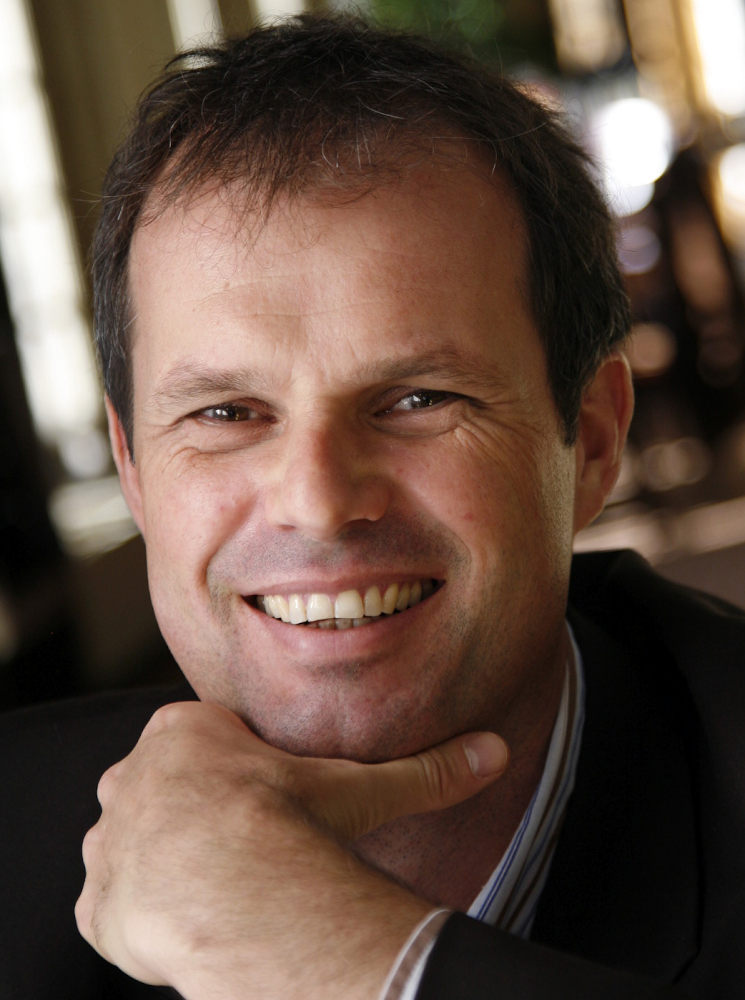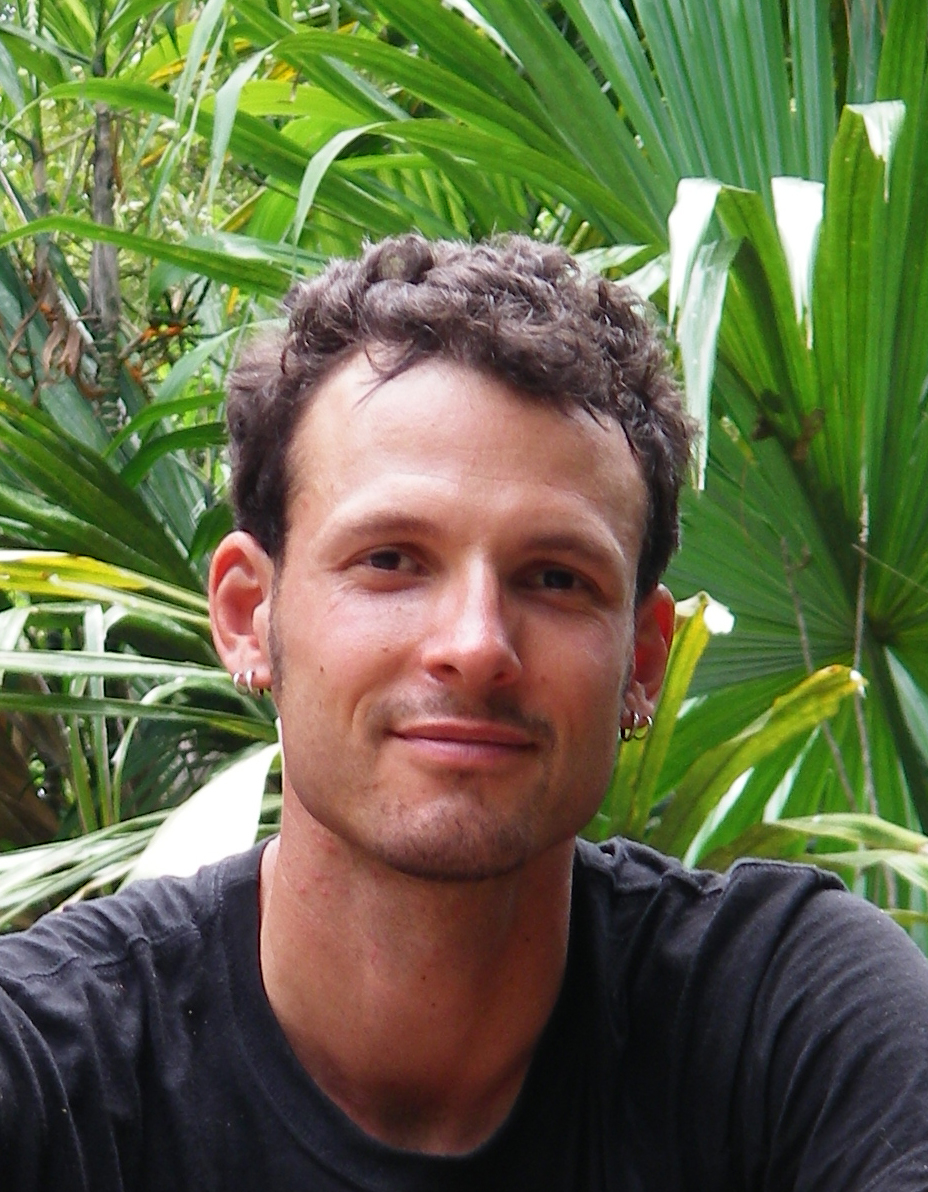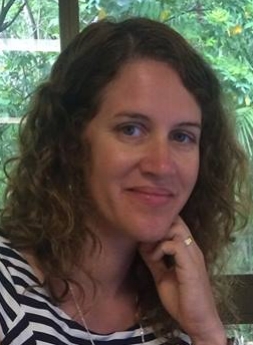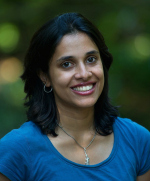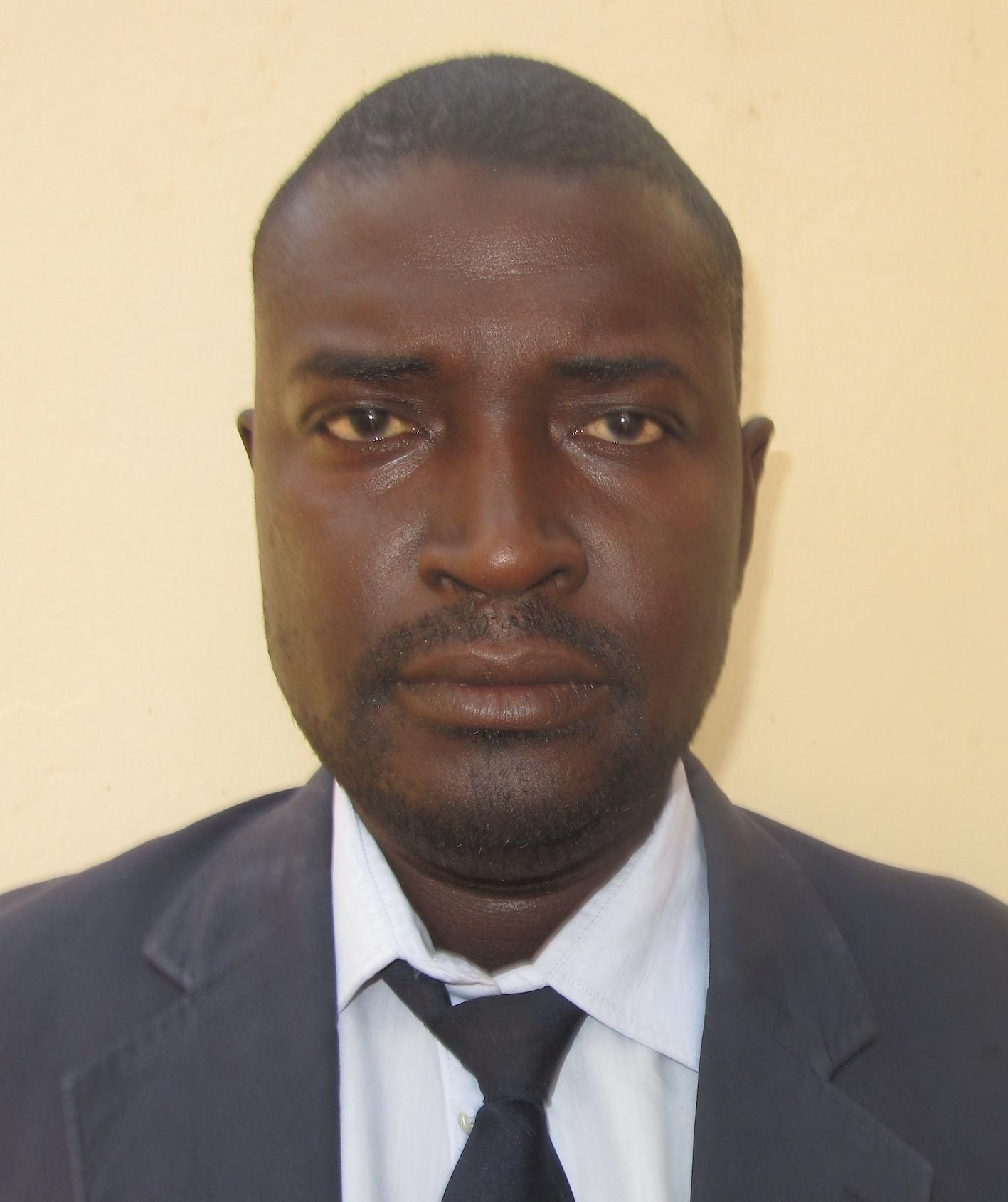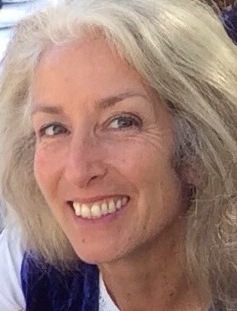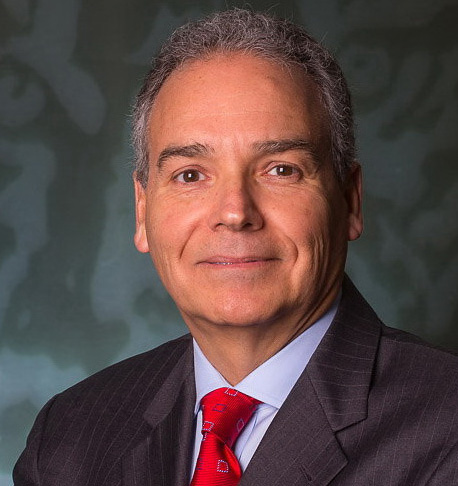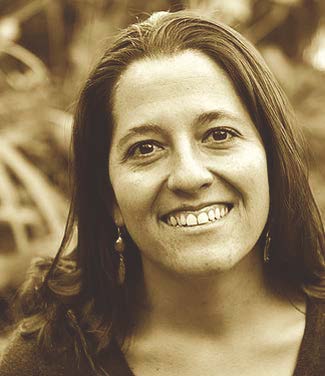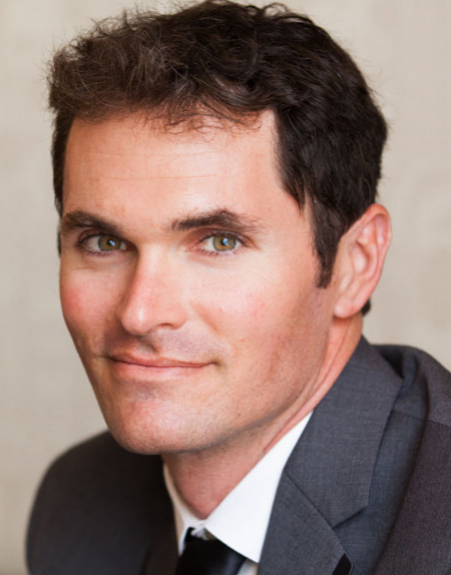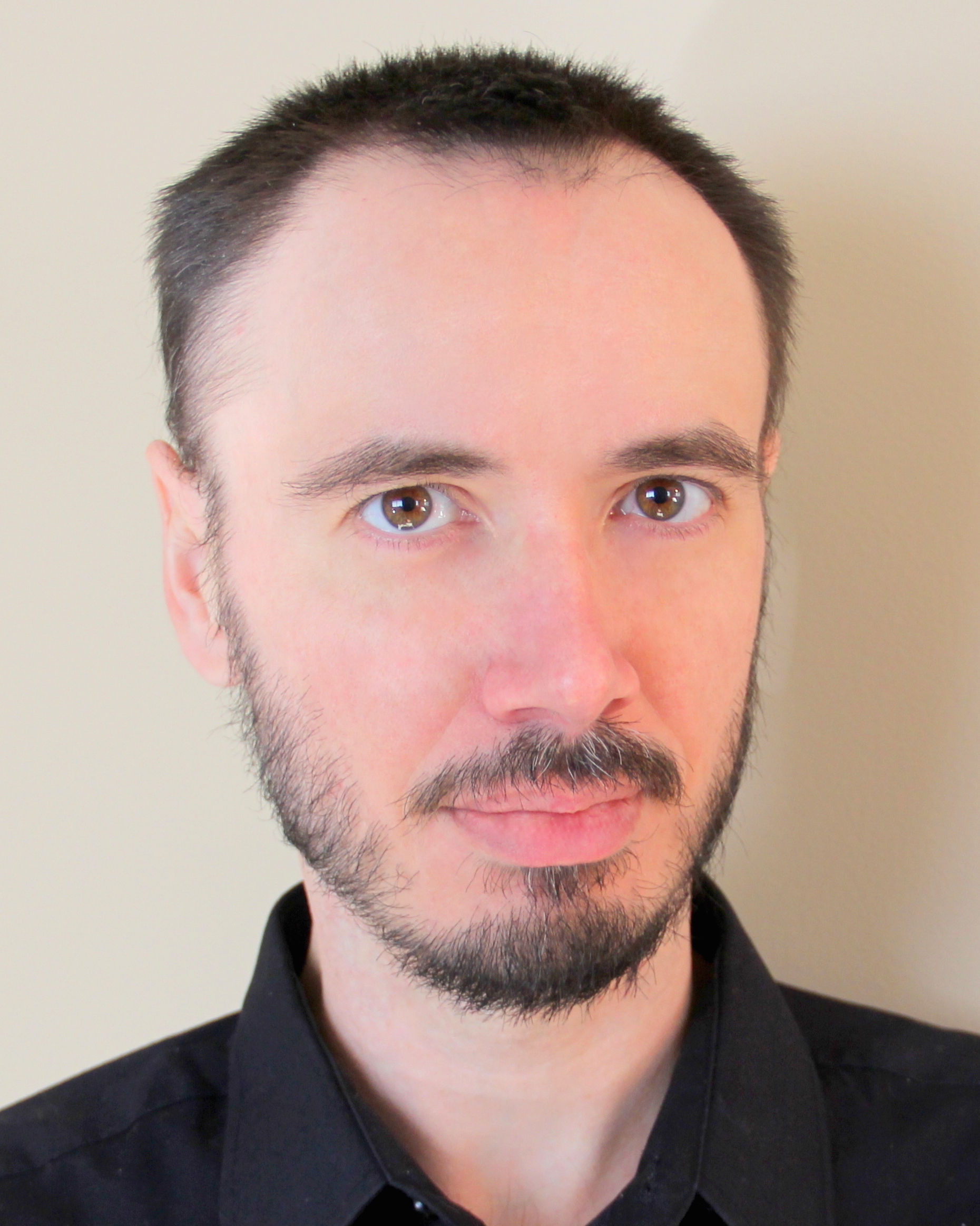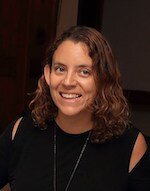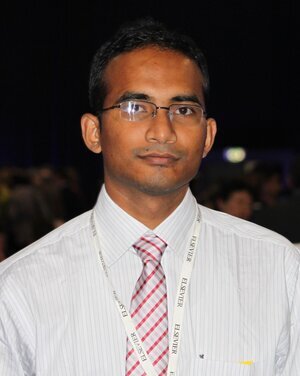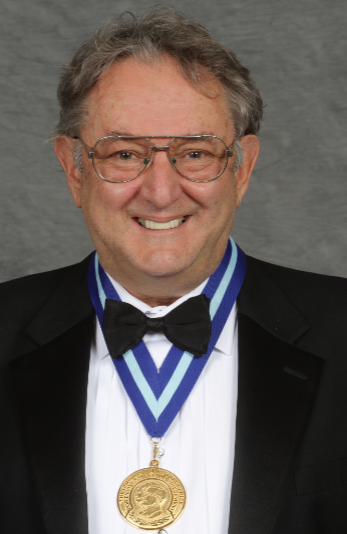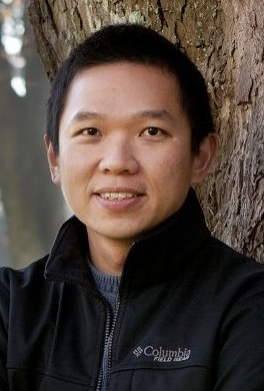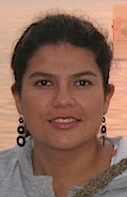ALERT is a unique kind of scientific organization—one that helps world-class researchers have a concerted, highly credible voice on key environmental issues. Here are the core members of ALERT.
Director
Professor William Laurance
ALERT is directed by William “Bill” Laurance, Distinguished Research Professor and Australian Laureate at James Cook University in Cairns, Queensland, Australia. He also holds the Prince Bernhard Chair in International Nature Conservation at Utrecht University, Netherlands.
Bill is a fellow of the Australian Academy of Science and the American Association for the Advancement of Science. He is also a former president of the Association for Tropical Biology and Conservation. A leading scientist and advocate for environmental sustainability, he has received many professional honors, including the Heineken Environment Prize, the BBVA Frontiers in Ecology and Conservation Biology Award, and a Distinguished Service Award from the Society for Conservation Biology. In 2015 he received the Royal Zoological Society of London's Outstanding Achievements in Conservation Award. He is the author of eight books and more than 600 scientific and popular articles, and is a four-time winner of Australia's Best Science Writing Award.
Media Advisors, Contributing Authors, and Research Assistant
ALERT’s media strategist is Nina Taylor, who took over the role from Nicole Senn in August 2019. Nina has a background in marketing, social media, graphic and website design. She has worked freelance for a number of years and for a range of organisations providing these services.
She is comfortable communicating on a range of digital platforms and creates beautiful and engaging digital content. Nina has used her skills to continue the growth, reach and readership of ALERT.
Nina Taylor
Ellen Field
ALERT’S contributing media strategist is Dr Ellen Field. Ellen's research is focused on understanding how youth engage in environmental peer-to-peer learning within social media sites. Ellen's research portfolio is focused on 'Connected learning', an educational approach designed for learning in an ever-changing world, relevant to all populations, to real life contexts, and the realities of the digital age. She is a strong collaborator who builds bridges between institutions and has worked with multiple NGO's and research centres to improve educational outcomes in both online and offline spaces.
Rhett Butler
Rhett Butler founded Mongabay.com in 1999 and currently serves as president and editor-in-chief of the web site. He is also the founder and executive director of Mongabay.org, a non-profit that was spun-off from Mongabay.com in 2011. Rhett runs WildMadagascar.org, a site that highlights the cultural and biological richness of Madagascar, and the Tropical Forest Network, a social network in the San Francisco Bay Area broadly interested in tropical forest conservation and ecology. Rhett is the co-founder of Tropical Conservation Science, an open-access academic journal that aims to provide opportunities for scientists in developing countries to publish their research. From 2010-2012, Rhett was an advisor on tropical forests to the Skoll Foundation. Rhett’s writing and photographs have been published widely, including in academic journals. Rhett attended university at UC San Diego, focusing on Economics-Management Science.
Penny van Oosterzee is one of Australia’s leading science writers. She is an Adjunct Associate Professor at James Cook University. Her Ph.D focused on climate-change policies and their relationship to land-use prioritization, such as ecological restoration to increase forest-carbon storage and biodiversity. Penny is a multi-award-winning author, with two Eureka Science Awards, several Whitley Awards, and the John Mulvaney Award for archeology. She also has worked extensively in private enterprise, leading business ventures in tourism, ecosystem services, and environmental consulting. She has long-term experience with biodiversity issues, having been appointed as a Governor of WWF-Australia and a Board Member of the Federal Biodiversity Advisory Council in Australia.
Penny van Oosterzee
Jeremy Hance
Jeremy Hance is an active freelance and environmental journalist. For six years he served as a principal writer and editor at Mongabay, the world-leading environmental website. He remains a senior correspondent with Mongabay, where he completed a recent series of highly topical articles entitled Conservation, Divided. He also writes a regular wildlife blog for the The Guardian, the respected international newspaper. Jeremy has written about wildlife conservation, climate change, energy politics, animal behaviour, indigenous peoples, and many other topics. He has a Bachelors degree from Macalester College in Minnesota, USA, and a 'Masters in Great Books' from St. John's College in New Mexico, USA.
David Salt is a Canberra-based science writer with over 30 years’ experience covering the spectrum of science, technology, and the environment. He began by establishing a national science magazine called The Helix for CSIRO Education, which he produced for 10 years. He was also Editor of Newton magazine for Australian Geographic, and Materials Monthly and ScienceWise for the Australian National University. He now writes and produces Decision Point, a research magazine from Australian National University on the latest environmental-decision science. In addition to writing for Cosmos, G-Mag, The Conversation, and Australasian Science, David has co-authored a number of seminal texts on biodiversity and resilience science.
David Salt
Scientists
Professor Thomas E Lovejoy
Thomas E. Lovejoy is University Professor in the Department of Environmental Science and Policy at George Mason University. He also holds the Biodiversity Chair at the Heinz Center for Science, Economics, and the Environment based in Washington, DC, and was President of the Heinz Center from 2002-2008. Prior to this, Lovejoy was the World Bank’s Chief Biodiversity Advisor and Lead Specialist for Environment for Latin America and the Caribbean as well as Senior Advisor to the President of the United Nations Foundation. Spanning the political spectrum, Lovejoy has served on science and environmental councils under the Reagan, Bush, and Clinton administrations. In 1980 he produced the first projection of global extinctions for the Global 2000 Report to the President. Lovejoy also developed the now ubiquitous “debt-for-nature” swap programs and led the Minimum Critical Size of Ecosystems project. He has received the prestigious Tyler Prize for Environmental Achievement, was co-winner (with William Laurance) of the BBVA Foundation Frontiers of Knowledge Award in the Ecology and Conservation Biology Category, and was recognized by the Blue Planet Prize. Lovejoy holds B.S. and Ph.D (biology) degrees from Yale University.
Stuart Pimm is a world leader in the study of present day extinctions and what can be done to prevent them. His research covers the reasons why species become extinct, how fast they do so, the global patterns of habitat loss and species extinction and, importantly, the management consequences of this research. Pimm received his BA degree from Oxford University in 1971 and his Ph.D from New Mexico State University in 1974. Pimm is the author of over 270 scientific papers and four books. The Institute of Scientific Information has ranked him as one of the most highly cited environmental scientists for over a decade. Pimm wrote the highly acclaimed assessment of the human impact to the planet: The World According to Pimm: a Scientist Audits the Earth in 2001. His commitment to the interface between science and policy has lead to his testimony to both House and Senate Committees on the re-authorization of the Endangered Species Act. He was worked and taught in Africa for nearly 20 years on elephants, most recently lions — through National Geographic’s Big Cats Initiative — but always on topics that relate to the conservation of wildlife and the ecosystems on which they depend. Other research areas include the Everglades of Florida and tropical forests in South America, especially the Atlantic Coast forest of Brazil and the northern Andes — two of the world's "hotspots" for threatened species.
Professor Stuart Pimm
Professor Priya Davidar
Priya Davidar is a Professor of Ecology and former Dean of the School of Life Sciences at Pondicherry University, India. Her scientific interests are plant-animal interaction, large scale patterns of species distribution, and the design of protected areas. She is a member of various committees involving wildlife conservation policy issues in India. She participates in advocacy networks for biodiversity conservation. Her Ph. D. was from Bombay University under the supervision of the late Dr. Salim Ali, and has an additional Master’s degree from the Harvard School of Public Health. She was a postdoctoral fellow and Senior Fellow at the Smithsonian Tropical Research Institute. She served as the President of the Association for Tropical Biology and Conservation (ATBC) in 2009.
Mahmoud Ibrahim Mahmoud, a leading Nigerian researcher, holds a PhD degree in Climate Change and Land Use from KNUST, Kumasi, Ghana and is currently a postdoctoral fellow with the Centre for Tropical Environmental and Sustainability Science at James Cook University in Australia. He obtained his MSc in Geoinformation Science and Earth Observation from ITC, University of Twente, The Netherlands, and has a background in Geography and Remote Sensing Applications from the Federal University of Technology in Minna, Nigeria. An environmental scientist and spatial modeler, he also works as an Environmental Scientist with the National Oil Spill Detection and Response Agency in Abuja, Nigeria, to reduce and manage the environmental and social impacts of oil spills. Mahmoud has used his in-depth knowledge of geospatial information science to create Environmental Sensitivity Index maps, underground storage tank-farm databases, and mapping of oil spill records. His current research focuses on assessing the impacts of infrastructure expansion on the tropical forests and wildlife of Equatorial Africa.
Dr Mahmoud Ibrahim Mahmoud
Professor Pierre-Michel Forget
Pierre-Michel Forget is Professor of Ecology of Tropical Ecosystems at the National Museum of Natural History (Muséum National d’Histoire Naturelle), Brunoy. He is Adjunct Director of the CNRS-MNHN MECADEV Research Unit UMR7179. He has served as President of the Association for Tropical Biology and Conservation (ATBC), and currently is the Vice-President of the Society For Tropical Ecology (GTOE). He is member of the Editorial Boards of Journal of Tropical Ecology and Tropical Conservation Science. He was trained at the University Pierre et Marie Curie.
Singaporean researcher Lian Pin Koh is an Associate Professor at the School of Earth and Environmental Sciences, the University of Adelaide. He is also a Founding Director of ConservationDrones.org, a non-profit that seeks to build capacity in the use of unmanned aerial systems for conservation applications in the developing tropics. Lian Pin has authored numerous cutting-edge scientific publications and is a staunch advocate for the need to balance economic development with environmental protection. Lian Pin has received many professional honors and awards, including a Swiss National Science Foundation Professorship, being named a Young Global Leader by the World Economic Forum and “Highly Cited” Researcher in Ecology and Environment by Thomson Reuters. He was trained at Princeton University.
Associate Professor Lian Pin Koh
Professor Cagan Sekercioglu
Cagan Sekercioglu studied biology and anthropology at Harvard University after being inspired by Stephen Jay Gould, Ernst Mayr, and Edward O. Wilson. A leading Turkish scientist, Cagan received his PhD in ecology and evolution from Stanford University and is a senior research scientist at Stanford. His major projects include include the Costa Rican bird ecology and population dynamics project he started in 1999 and the world bird ecology database he initiated in 2000. He has done field work on all continents in places like Alaska, Angola, Australia, Ethiopia, Malaysia, and Uganda. His research covers the entire spectrum of biodiversity, from ethnobotany surveys with village medicine women to mark-recapture analyses of bird populations to camera trap surveys of bears to building Turkey's first man-made bird nesting island. His conservation efforts have been rewarded with Ramsar recognition, the European Destination of Excellence ecotourism award, and the Whitley Gold award for grassroots conservation.
Jean-Philippe Puyravaud is the director of ECOS, a trust based in India dedicated to the conservation of biodiversity. He studied primary productivity of African savannas and the effect of human-related disturbance in India. He was the first director of the Madagascar-based Centre ValBio, a field station of the State University of New York at Stony Brook, and was an executive of a renewable energy company for three years. He is particularly interested in landscape ecology and landscape optimization for conservation and therefore initiated projects on the study of deforestation patterns in India, and the habitat requirements of threatened species such as the Asian elephant. He was trained at Ecole Normale Superieure, Paris, France.
Jean-Philippe Puyravaud
Professor Gretchen Daily
Gretchen Daily is Bing Professor of Environmental Science at Stanford University, where she also serves as Senior Fellow in the Woods Institute; Director of the Center for Conservation Biology; and co-founder and faculty director of the Natural Capital Project (www.naturalcapitalproject.org), an international partnership whose goal is to improve the well-being of people and the environment by mainstreaming the values of nature into key decisions globally. An ecologist by training, Daily’s research is on harmonizing biodiversity conservation, agriculture, and livelihoods; quantifying the production and value of ecosystem services; and new policy and finance mechanisms for integrating conservation and human development. Her greatest love is in the tropics – and her efforts span fundamental research and policy-oriented demonstrations in over 30 nations worldwide. Daily is a fellow of the US National Academy of Sciences and American Philosophical Society, and has been recognized with the Sophie Prize, International Cosmos Prize, Midori Prize for Biodiversity, the Volvo Environment Prize, and the Heinz Award and Biodiversity Award.
Gabriella Fredriksson finalized her PhD at the University of Amsterdam, Netherlands, focusing on the effects of El Niño and forest fires on sun bears. She received a knighthood in 2004 for her conservation work in Indonesian Borneo. She is currently actively working on habitat conservation in Sumatra, has pioneered the development of an innovative conservation education center in East Kalimantan, and is co-chair of the sun bear expert team of the IUCN/SSC Bear Specialist Group. She is associated with the Institute for Biodiversity and Ecosystem Dynamics, and guest lecturer at the University of Edinburgh.
Dr. Gabriella Fredriksson
Dr. Gopalasamy Reuben Clements
Gopalasamy Reuben Clements was a former Postdoctoral Research Associate with Bill Laurance in the Center for Tropical Environmental and Sustainability Science at James Cook University. He is currently a researcher with Panthera and an Honorary Assistant Professor with the University of Nottingham Malaysia Campus. Reuben was previously the Species Conservation Manager for WWF-Malaysia, managing over 20 people in WWF’s Malayan tiger and Sumatran rhinoceros projects in Peninsular Malaysia. He has also contributed to assessments of several IUCN Red Listed species and reviews of IUCN technical reports and World Heritage nominations. Reuben has accumulated over nine years of research experience on molluscs and mammals in the Malay Archipelago with over 40 ISI peer-reviewed papers, some of which have been featured the New York Times, Mongabay.com, National Geographic, Nature and CNN. In that time, Reuben has also been actively contributing to wildlife conservation on-the-ground through his involvement in anti-poaching, improvement of wildlife legislation, and mobilization of local communities to mitigate human-wildlife conflict. In 2010, Reuben co-founded a non-profit research group known as Rimba, which also serves as a platform to communicate research findings and conservation news to the general public.
Corey Bradshaw currently holds the Chair of Ecological Modelling at the University of Adelaide’s Environment Institute, and directs the Global Ecology Group in the School of Biological Sciences. Corey has published over 210 peer-reviewed scientific articles. He is a member of the Faculty of 1000 and fellow of the Royal Society of South Australia. He was awarded the 2010 Australian Ecology Research Award, the 2010 Scopus Young Researcher of the Year, the 2009 HG Andrewartha Medal, and a 2008 Young Tall Poppy Science Award. He is also editor of three international scientific journals (Ecology Letters, F1000Research, Journal of Animal Ecology) and is regularly featured in Australian and international media for his research. His blog, ConservationBytes.com, is visited over 1000 times daily from conservation-interested people all over the world.
Professor Yadvinder Malhi
Yadvinder Malhi is Professor of Ecosystem Science at the University of Oxford and Director of the Oxford Centre for Tropical Forests. He is a Fellow of the prestigious Royal Society in the U.K. His work focuses on understanding the ecosystem ecology of tropical forests, and how this will change in the context of global atmospheric change and direct anthropogenic change. His research employs a range of tools from intensive field studies through to satellite monitoring and ecosystem modelling. Much of his work has focussed on Amazonia, where he was co-founder of the RAINFOR forest-plots network, and the ABERG elevational transect in the Andes. More recently, his research has also spread to the forests of Africa and Asia. He leads the GEM (Global Ecosystems Monitoring) network of intensive forest-monitoring sites across the tropics, which also involves understanding forest landscapes as social-ecological systems. More generally, he is interested in understanding how we can maximize the resilience and viability of the tropical-forest biome in the context of Anthropocene pressures, and in building the scientific capacity of tropical-forest nations.
Susan Laurance is a Professor at James Cook University in Cairns, Australia. She also holds a prestigious Australian Research Council 'Future Fellowship' and is Past President of the Association for Tropical Biology and Conservation. Her PhD research focused on the impacts of roads on Amazon forest birds, and she presently studies the effects of droughts and forest fragmentation on tropical forests in Australia and the Amazon. She also has interests in forest regeneration and landscape epidemiology in tropical environments, and in the management of protected areas and human-dominated landscapes. She is the author of over 100 scientific publications to date.
Professor Susan Laurance
Associate Professor Joshua Linder
Joshua Linder is an Assistant Professor of Anthropology at James Madison University, Virginia, USA. He has worked in and around Cameroon’s Korup National Park for over 10 years studying primate ecology, bushmeat hunting and trade, industrial oil palm development, and protected area management. Through scientific research, advocacy, and activism, and by partnering with local organizations he aims to improve the effectiveness of conservation strategies. He is a member of the board of the German NGO SAVE Wildlife Conservation Fund. He was trained at the City University of New York and the New York Consortium in Evolutionary Primatology.
Tom Struhsaker has been a leader in the study of primate ecology and conservation in Africa for over forty years. Tom received a Lifetime Achievement Award by the International Primatological Society in 2006 to mark his long-standing contributions to and achievements within primate research and primate conservation. In the 1970's, Tom's search for a site where primates were not hunted took him to Kibale Forest in Uganda, where he set the stage for what arguably became Africa's leading primate and tropical forest research station, conservation, and training site. Through Tom's long-term studies in the Kibale Forest, he initiated many of the methods that are now standard practice in the study of rain forest monkey ecology. Tom has made a significant impact over the generations by mentoring students and forging ties with local and foreign biologists, many of whom have gone on to train the next generation of Ugandan conservationists. He received his PhD at the University of California, Berkeley in 1965.
Professor Tom Struhsaker
Associate Professor Alice Hughes
Alice C. Hughes is Associate Professor at Xishuangbanna Tropical Botanical Garden, Chinese Academy of Sciences, China, and Vice Director of their Field Studies Program. Alice has worked extensively across the Tropics, and previously held positions in Thailand, Australia, Costa Rica, and the UK. Her work focuses on patterns of biodiversity and drivers of biodiversity change, at various spatiotemporal scales in order to develop pro-active management strategies that aim to mitigate the impacts of human activities on biodiversity. Hughes is a board member of the Association of Tropical Biology and Conservation, the Society for Conservation Biology, the European Tropical Ecology Society, and the International Network of Next Generation Ecologists. She is Secretary of the Asia-Pacific Chapter of the ATBC, and Chair of the Capacity Building and Meetings committees. Hughes is actively engaged in capacity building, with a focus on real-world conservation and management issues. Since 2012 she has directly trained over 500 students from over 40 countries and organized training for many more. She has organized conferences on key issues such as trans-boundary conservation, the illegal wildlife trade, and climate change ecology.
Craig Morley is an Associate Professor at the Waiariki Institute of Technology, Rotorua, New Zealand. He has worked for the University South Pacific, Fiji, as a conservation biologist and in New Zealand’s Department of Conservation as a Biodiversity programme manager. With his students in Fiji, he won the BP Gold conservation award for his work on protecting Fiji’s endangered ground frog. He has been the Past President of the Society for Conservation Biology (SCB) Oceania Section and was on the Board of Governors at SCB. He is a member of the IUCN Invasive Species Specialist Group and in World Commission for Protected Areas. Most of his research has been on the impact of invasive species, particularly on islands and in agricultural systems. Presently, his time is spent researching and advocating for sustainable land-use practices to improve and protect water quality around some of New Zealand’s most iconic sites. He firmly believes in conservation-based evidence to promote and enhance good community practice. He trained at the University Of Canterbury, New Zealand.
Associate Professor Craig Morley
Emeritus Professor John Terborgh
John Terborgh is an Emeritus Professor of Environmental Science and Director of the Center for Tropical Conservation at Duke University, and was formerly a Professor at Princeton University and the University of Maryland. He is a member of the prestigious U.S. National Academy of Sciences, and for the past forty years has been actively involved in tropical ecology and conservation issues. Dr. Terborgh has published numerous articles and books on conservation themes. Since 1973 he has operated a field station in Peru's Manu National Park where he has overseen the research of more than one hundred investigators. In 1992 he was awarded a John D. and Catherine T. MacArthur Fellowship in recognition of his distinguished work in tropical ecology, and in 1996 he was awarded the National Academy of Sciences Daniel Giraud Elliot medal for his research and his book, Diversity and the Tropical Rainforest. He has served on several boards and advisory committees related to conservation, including the Wildlands Project, Cultural Survival, The Nature Conservancy, The World Wildlife Fund and both the Primate and Ecology Specialist Groups of the International Union for the Conservation of Nature. He received his Ph.D. at Harvard University in 1963.
Renata Pardini is a Brazilian ecologist and professor at the University of São Paulo, one of Brazil's top research institutions. She received her Ph.D. at the University of São Paulo in 2001 and also had her postdoctoral training there. She is a highly productive scientist who studies mammal communities and the impacts of human habitat alteration, especially in the heavily fragmented Brazilian Atlantic forests. She has received several prominent awards for her publications, several of which are very highly cited. She is recognized as one of Brazil's rising stars in the field of conservation biology.
Professor Renata Pardini
Professor Philip Fearnside
Philip Fearnside is a Research Professor in the Department of Ecology at the National Institute for Research in the Amazon (INPA) in Manaus, Amazonas, Brazil. He is a permanent resident in Brazil where he has lived in Amazonia for over 30 years doing ecological research. He also has field experience in India, Indonesia, and China. He received his Ph.D. in 1978 from the University of Michigan. Fearnside's research since 1974 has focused on estimating the human carrying capacity of tropical agro-ecosystems, and studying the impacts of infrastructure, development projects, and government policies on Amazonian forests. He has authored over 350 publications on these and related problems of environment and development. His honors include Brazil's National Ecology Prize, the UN Global 500 award, the Conrad Wessel prize, the Chico Mendes prize and membership in the Brazilian Academy of Sciences. In 2006 he was identified by Thompson-ISI as the world’s second most-cited scientist on the subject of global warming.
Martine Maron is Associate Professor of Environmental Management and an Australian Research Council Future Fellow at The University of Queensland. She is a Director of BirdLife Australia and Deputy Director of the Threatened Species Recovery Hub funded by Australia’s National Environmental Science Program. She researches a range of problems in applied ecology and conservation policy, and works with governments and environmental non-government organisations, both within Australia and internationally, to improve responses to conservation challenges. Martine leads a research group that works on problems relating to drivers of landscape-level species richness, resource distribution and persistence of bird species in patchy landscapes, and biodiversity offsetting.
Associate Professor Martine Maron
Associate Professor James Watson
Associate Professor James Watson is a Principle Research Fellow at the University of Queensland and the Director of the Climate Change Initiative at the Wildlife Conservation Society. A former army officer (and distinguished graduate from Australian Defence Force Academy and Royal Military College), James completed his doctorate at the Oxford University in 2004, where funded by a Rhodes Scholarship, he explored the effects of habitat fragmentation and deforestation on biodiversity in Madagascar. Since his PhD and before joining WCS, he has worked as a post-doctoral fellow at the University of California (San Diego) and at the University of Queensland, and as a senior forest campaigner for The Wilderness Society in Australia. He is currently co-chair of the IUCN climate change specialist group, serves on the leadership committees for the Science for Nature and People (SNAP) Initiative, the International Panel for Biodiversity and Ecosystem Services (IPBES) Data and Knowledge Task Force, and was recently elected the global president-elect of the Society for Conservation Biology. He is an associate editor of three conservation journals (Conservation Biology, Diversity and Distributions, and Pacific Conservation Biology) and has published more than 80 peer reviewed and popular articles on conservation related issues.
Dr Carol Garzon-Lopez is a Colombian researcher and the director of Verde Elemental, a website in Spanish, dedicated to promoting and disseminating knowledge in ecology and conservation for Latin America. She is currently a postdoctoral researcher at Fondazione Edmund Mach (Italy), where she provides expertise on the use of remote sensing tools and integrative approaches for species distribution modeling as part of the European Union Biodiversity Observation Network project. Her scientific interests include ecosystem ecology and the use of spatial tools for research on conservation in the tropics. She holds a Master's degree and Ph.D. from Groningen University, Netherlands. During her Ph.D. she studied the determinants of the spatial distribution of tree species in a tropical forest in Panama, at the Smithsonian Tropical Research Institute, where she has also collaborated in education and public communication.
Dr Carol Garzon-Lopez
Dr Erik Meijaard
Dr Erik Meijaard has worked in Indonesia as a conservation scientist since 1992 and presently coordinates the Borneo Futures initiative, an influential applied conservation science program that focuses on communicating research result to those that matter: people on the ground and people in power. He holds an MSc degree in Tropical Ecology from the Wageningen Agricultural University, and a PhD degree in Biological Anthropology from the Australian National University (ANU). Academically he is affiliated with ANU, the Centre of Excellence for Environmental Decisions at the University of Queensland, and the Center for International Forestry Research in Indonesia. Erik is an accomplished scientist and prolific writer on environmental conservation issues, with 156 peer-reviewed papers. He is also a frequent popular writer for Indonesian and international newspapers. Erik’s books include one of the first comprehensive species conservation books in Indonesia, Our Vanishing Relative, on orangutans and their conservation, and Life after Logging, a cutting-edge guide on how to manage timber concessions for conservation.
Dr Lingfei Weng is a Senior Research Fellow at the School of Public Affairs, Chongqing University, China. She is also a member of the “Hundred Talents Program”, a plan in China to recognize and recruit world-leading experts in scientific research, innovation, and entrepreneurship. Lingfei was previously a postdoctoral research associate at Tsinghua University in China, and received her Ph.D. in Environment Science at James Cook University, Australia. Her research focuses on sustainability and development, particularly on China’s role in promoting the U.N. Sustainable Development Goals via foreign investments and aid to developing nations in Africa and Southeast Asia.
Dr Lingfei Weng
Dr Jedediah Brodie
Dr Jedediah Brodie is a conservation biologist and field ecologist, serving as the John J. Craighead Endowed Chair of Conservation at the University of Montana. He studies landscape connectivity, striving for sustainability in wildlife exploitation, and mitigating the impacts of climate change, hunting, and logging on organisms and ecosystems. He is also interested in the role that rainforest mammals play in maintaining forest carbon stocks, via dispersing seeds of critical tree species. Jedediah has worked in tropical Asia, North America, southern Africa, and Central America, currently focusing on Southeast Asia -particularly Malaysian Borneo and eastern Indonesia. He is actively engaged with the governments of Sarawak and Sabah (Malaysia) on protecting habitat corridors for wildlife and on the sustainability of bushmeat hunting. He was a Fulbright Research Fellow to Malaysia and a David H. Smith Conservation Research Fellow with the Society for Conservation Biology.
Mohammed Alamgir is a spatial ecological and climate change modeler. He is currently a postdoctoral researcher in the Centre for Tropical Environmental and Sustainability Science at James Cook University in Australia, and an Assistant Professor of Forestry and Environmental Sciences at the University of Chittagong in Bangladesh. Prior to completing his PhD in Environmental Sciences from James Cook University, Mohammed achieved a M.Sc. in Tropical Forestry and Management from the Technical University of Dresden, Germany, a M.Sc. in Environmental Forestry from Bangor University, U.K., and a M.Sc. in Forestry from University of Chittagong, Bangladesh. Mohammed has been an Australian Government Endeavour Scholar and a European Commission Erasmus Mundus Scholar. He uses spatial modeling to assess the impacts of land-use and climatic changes on natural ecosystems and biodiversity. His prior research includes habitat modeling of endangered wildlife species in Bangladesh; climate change impacts and adaptation in Nepal; the distribution and spatial congruence between biodiversity and ecosystem services in Australia; and how carbon storage could be maximized along with biodiversity conservation in Australian forests. Mohammed has authored more than 30 peer-reviewed journal articles and many scholarly book chapters and magazine articles. He is currently studying the impacts of proposed road and infrastructure projects on biodiversity and sustainability in the Asia-Pacific region.
Dr Mohammed Alamgir
Dr Nandini Velho
Nandini Velho is a biologist who studies the applied and human dimensions of wildlife and protected-area management. She works closely with resident communities, children, and the Forest Department, especially in the tropical and subtropical regions of northeastern India. She received her PhD from James Cook University in Australia and is presently an Earth Institute Fellow at Columbia University in New York, USA. The author of a suite of technical and popular publications, she has has received numerous professional awards including the Royal Bank of Scotland’s “Earth Heroes” Award, the Wildlife Service Award from Sanctuary Asia, and the Dean’s Award for Research Excellence at James Cook University.
Cheikh Sidy Mbaye is an expert in sustainable-development strategies based in Senegal, West Africa. He is a geographer by training, specializing in governance and territorial intelligence, and holds a Master’s Degree in Environment, Population and Health. Cheikh Sidy is the founder of IDEAL (www.ideal.sn), a non-government group that promotes nature-based strategies to ensure access to a healthy environment for vulnerable groups of society, by improving social solidarity, economic efficiency, and environmental responsibility. IDEAL’s work focuses predominantly in Senegal.
Cheikh Sidy Mbaye
Affiliate Professor Phoebe Barnard
Phoebe Barnard is Chief Science and Policy Officer with the Conservation Biology Institute, and Affiliate Professor of conservation biology and environmental futures at the University of Washington. She has contributed to the work of the IUCN Connectivity Conservation Specialist Group via support to the Center for Large Landscape Conservation in 2018. Most of her career was spent in Namibia and South Africa, working in government and academia on conservation biology and global-change biology, as well as sustainability strategy and environmental policy. She established and ran national biodiversity and climate-change programs for the government of Namibia, and represented African governments on the global board of the Millennium Ecosystem Assessment and at the U.N. Convention on Biological Diversity. Phoebe is also a research associate of the University of Cape Town’s African Climate and Development Initiative and its FitzPatrick Institute of African Ornithology. She is a former Fulbright Scholar and received a Distinguished Service Award in 2002 from the Society for Conservation Biology. She received her B.Sc. in Canada (Acadia University) and M.Sc. and doctoral degrees from leading South African (Witwatersrand) and Swedish (Uppsala) universities.
Mason Campbell is a postdoctoral research fellow in the Centre for Tropical Environmental and Sustainability Science at James Cook University in Cairns, Australia. His research examines human land-use impacts on tropical plant and animal communities, land-use planning, and the conservation of natural ecosystems, especially in the Asia-Pacific region. He writes prolifically for both scientific and popular audiences, and is an award-winning public speaker. He received his training at James Cook University and Australian National University.
Dr Mason Campbell
Dr Francisco Dallmeier
Dr Francisco Dallmeier is the Director of the Center for Conservation and Sustainability at the Smithsonian Conservation Biology Institute, in Washington, D.C. He is a leading conservation biologist working with the development sector to integrate conservation needs with infrastructure-development priorities to sustain biodiversity. He is a senior adviser to policy makers and financial institutions in the development and implementation of best practices for sustainable development. He has been responsible for designing and implementing biodiversity action plans, biodiversity monitoring and assessment programs, and mainstreaming avoidance, minimization, restoration, and offsets for development projects in critical habitats in Latin America and Africa. Francisco has developed and implemented professional capacity-building programs in conservation and sustainability for the public and private sectors. He was instrumental in creating the Smithsonian-World Bank Global Tiger Initiative, the Smithsonian-George Mason University School of Conservation, and the National Science Foundation-National Ecological Observatory Mid-Atlantic Network. Francisco’s publications and photographs have been published widely. He has worked and taught internationally for over 30 years and traveled professionally in nearly 70 countries.
Irene Burgués Arrea, a Costa Rican citizen, has worked extensively on the environmental, social, and economic impacts and design of large infrastructure projects in Latin America, Africa, and Asia, in concert with the Conservation Strategy Fund. She coordinated various studies that aided in the avoidance of poorly conceived projects, including Sao Luis de Tapajos Dam in Brazil, Tenosique Dam in México, and road networks within the Bwindi Impenetrable Forest in Uganda and the Maya Forest in México and Guatemala. She also led studies in Panamá and Uganda that showcased how pipelines and electric power-lines can incorporate geographical information to limit biodiversity loss. Trained in Economics and Environmental Science at the University of York, UK, her technical expertise focuses on cost-benefit analysis and economic valuation of environmental services, estimating greenhouse gas-emissions, and payments for ecosystem services. Since 2016 has she focused on promoting organic farming and sustainable-energy systems in Latin America.
Irene Burgués Arrea
Dr. Sharif A. Mukul
A long-term researcher in Bangladesh, Dr. Sharif A. Mukul is a Senior Research Fellow at the University of the Sunshine Coast in Australia and a Research Assistant Professor of Earth and Environment at Florida International University, USA. He is also Executive Director of the Centre for Research on Land-use Sustainability, an online platform and think-tank aiming at research, consultancy, and decision-making on land-use-related issues in the tropics. Dr Mukul has published extensively in international peer-reviewed journals and books. His research has been featured in top international news outlets including The New York Times, CNN, Smithsonian Magazine, and Mongabay.com. He received his PhD in Environmental Management from the University of Queensland, Australia.

